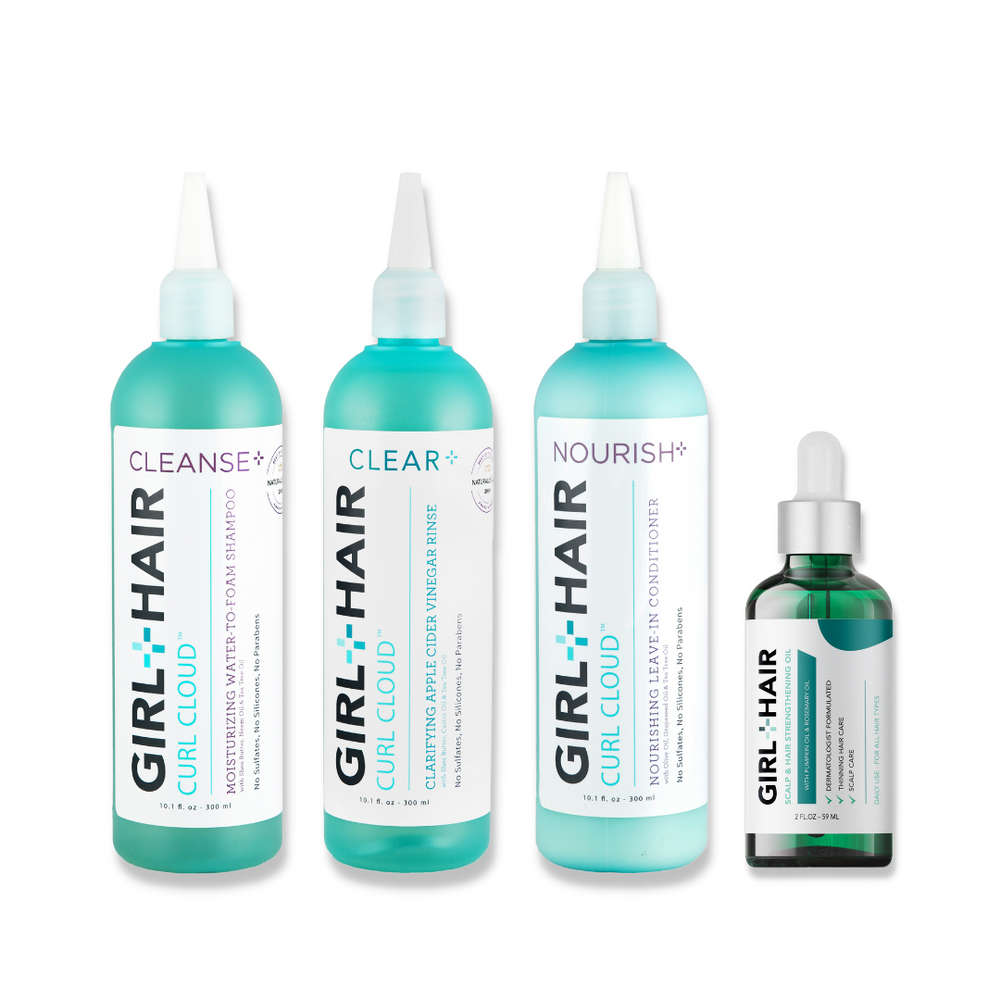The Basics of Scalp Aging
At the heart of scalp aging is a concept known as oxidative stress. Imagine oxidative stress like rust accumulating on a metal surface. In our bodies, oxidative stress occurs when there’s an imbalance between harmful free radicals (think of them as rust) and our body's ability to fight them off. This imbalance can damage our scalp and hair, leading to aging signs like hair thinning, greying, and changes in hair quality.
Types of Hair Loss You Should Know About
In the complex world of hair health, the reasons behind hair loss are as varied as they are numerous, leading to a wide spectrum of diagnoses. It's easy to feel overwhelmed by the endless array of causes - from genetics and hormonal changes to stress and environmental factors. Amidst this confusion, the market is flooded with products promising miraculous results, targeting our insecurities and urging us to buy, buy, buy. However, a significant portion of these consumer products lack clinical significance, leaving individuals navigating a maze of solutions without guidance on their effectiveness.
Understanding this, it's crucial to emphasize the importance of consulting with a dermatologist who specializes in hair loss. These experts can provide a precise diagnosis, distinguishing between the various types of hair loss and identifying the specific condition affecting you. This step is not just about obtaining a name for your experience but about embarking on a tailored hair journey with professional support.
For those facing moderate to severe cases, the value of a dermatologist's expertise cannot be overstated. They can recommend treatment plans backed by scientific research and clinical success, far removed from the hit-or-miss solutions found in the consumer market. Treating hair loss is a race against time; early intervention can be the key to preventing the condition from advancing to a stage where reversal becomes a challenge, if not impossible.
Let's dive into some types of hair loss, keeping in mind that the journey to regaining hair health begins with understanding the cause and seeking the right professional help:
- Androgenetic Alopecia: Commonly known as male or female pattern baldness, this is related to genetics and hormones.
- Alopecia Areata: This involves sudden hair loss that starts with one or more circular bald patches.
- Cicatricial Alopecia (Scarring Alopecia): This type causes hair follicles to be destroyed and replaced with scar tissue, leading to permanent hair loss.
- Telogen Effluvium: A temporary hair shedding often triggered by stress, shock, or a traumatic event.
- Anagen Effluvium: Rapid hair loss resulting from medical treatment, such as chemotherapy.
- Traction Alopecia: Hair loss caused by pulling hair too tight, commonly seen with certain hairstyles.
- Trichotillomania: A condition where a person pulls out their hair as a response to stress or anxiety.
- Tinea Capitis (Scalp Ringworm): A fungal infection of the scalp, leading to hair loss and scalp spots.
- Alopecia Totalis: Total loss of hair on the scalp.
- Alopecia Universalis: Complete loss of hair on the scalp and body.
- Central Centrifugal Cicatricial Alopecia (CCCA): Hair loss that begins at the crown of the scalp and spreads outwards.
- Frontal Fibrosing Alopecia: A form of scarring alopecia that affects the hairline and eyebrows.
Oxidative stress can lead to premature hair aging in several ways:
- Hair Greying: The natural color-producing cells in your hair (melanocytes) get damaged, leading to grey hair.
- Hair Loss: Conditions like androgenetic alopecia show that oxidative stress can make hair follicle cells age faster, leading to hair loss.
- Scalp Conditions: A stressed scalp can lead to conditions like dandruff, seborrheic dermatitis, and psoriasis, all of which can impact hair health and growth.
Taking Care of Your Scalp
Preventing and managing scalp aging involves mitigating oxidative stress. Here are some tips:
- Protect Your Scalp: Use hats and hair products with UV protection to shield your scalp from sun damage.
- Nourish Your Body: A diet rich in antioxidants can help fight oxidative stress. Think colorful fruits and vegetables.
- Gentle Hair Care: Avoid tight hairstyles and harsh chemical treatments. Use gentle, nourishing hair care products.
- Manage Stress: Stress can exacerbate hair loss and greying. Engage in activities that reduce stress, like exercise, meditation, or hobbies.
- Scalp Treatments: Consider products that target the health of your scalp, such as those controlling dandruff or containing antioxidants.
I adore Girl + Hair products because it is one of the only brands that makes me feel like I am getting a professional salon scalp treatment at home. My scalp feels fresh, my hair is hydrated! They are designed to nourish, repair, and support healthy hair growth for all hair types. Their offerings include a clarifying apple cider vinegar hair rinse, sulfate-free shampoo, hydrating hair masks, and hair strengthening oils. Products are formulated to remove build-up, restore pH balance, repair damaged follicles, and improve hair elasticity. 
Understanding scalp aging and the role of oxidative stress in hair health is the first step toward taking better care of your hair. By adopting a holistic approach to hair care, you can protect your scalp from the ravages of time and environmental damage, ensuring your hair remains as vibrant and healthy as possible. Remember, your hair's health is directly linked to your scalp's well-being, so give it the attention it deserves!
